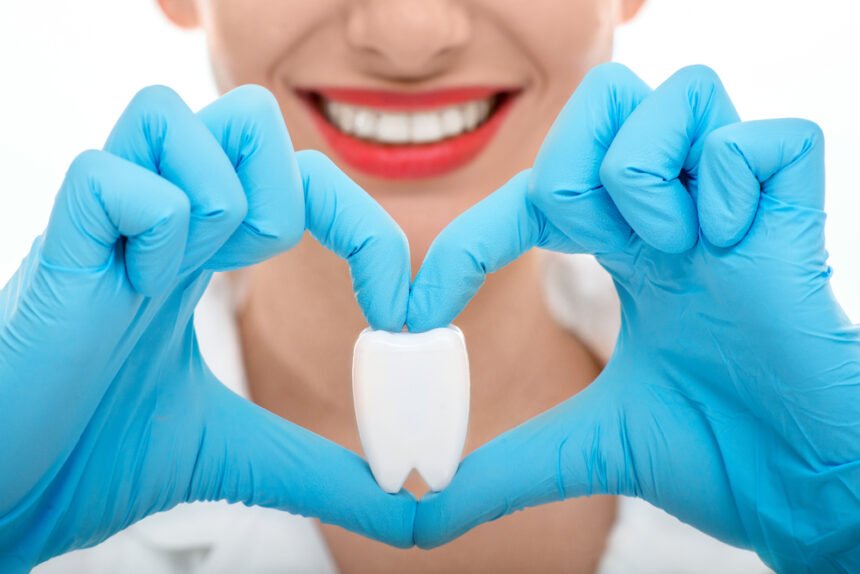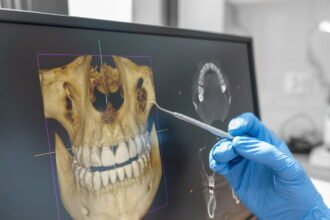What does a healthy smile have to do with a healthy heart? More than you might expect.
Oral hygiene plays a large role in our overall health. Our mouth is teeming with bacteria, many of which are beneficial, or at least harmless. If harmful bacteria are allowed to colonize the mouth, however, they then have direct access to your respiratory and digestive systems.
In the COVID-19 era, we’ve become more concerned with our health and more aware of the dangers of microbes than ever. While handwashing is essential, brushing your teeth and caring for your teeth and gum health is just as important to keep your body healthy.
Consult a dentist, like the experts at Durangodmd.com, to learn how to best protect your smile, and read on to learn how your dental health is connected to your heart health.
Dental Health Risks
If unhealthy bacteria are allowed to multiply in your mouth, they can cause oral infection. This impacts your teeth and gums, causing inflammation, discomfort, bad breath, and other unpleasant symptoms.
Apart from having major consequences for your smile, nasty mouth infections could pose a risk in other parts of your body. In fact, studies suggest that the oral bacteria present in periodontitis, a severe form of gum disease, could be involved in diseases impacting other parts of the body.
This relationship works both ways—the health of your body will impact the health of your mouth, and vice versa. Diabetes and HIV/AIDS can reduce your body’s capacity to fight infection, increasing the chance of developing an infection of the gums. Conversely, maintaining good gum health can help diabetics better control their blood sugar levels.
Choosing the right dentist, especially if you suffer from a condition that can impact your dental health, is a key part of dental care.
Heart Health and Dental Health
Just as there are conditions that impact your gums and teeth, the health of your mouth may increase or lower your risk of developing other conditions. While there’s no clear connection established, research has associated poor dental health with poor cardiovascular health.
Here are some connections between dental health and cardiovascular health:
- Periodontitis and other gum diseases can increase your risk of heart disease.
- Bacteria from your mouth can enter your bloodstream and infect the inner lining and valves of your heart, causing endocarditis.
- Oral bacteria may cause inflammation or infection in the cardiovascular system that may have a role in clogged arteries and strokes.
- Dental health is vital in managing diabetes, and diabetes can severely impact your cardiovascular health.
A recent study linked tooth-brushing behavior with risk for cardiovascular disease. It’s found that individuals who brush fewer than two times a day were three times more at risk for heart disease.
Inflammation from gum disease may also be a sign of inflammation in other parts of the body, most notably in the heart’s valves. While these studies have not established a clear cause and effect link between oral health and heart health, a healthy smile may well be the way to a healthy heart!
Therefore, protecting your teeth and gums from infection could go a long way in keeping your circulatory system functioning well.
Dental Health Warning Signs
In order to monitor the wellbeing of your mouth, it’s important to know the symptoms of gum disease. This is because undiagnosed gum infections can play a role in increasing the risk of your heart’s health.
The following could be signs that you should consult your dentist to address an issue with your gum health:
- Sore, inflamed, or discolored gums
- The production of pus or bleeding from your gums
- Receding gums, or gums that appear to be pulling away from your teeth
- Loose teeth
- Frequent bad breath
Any of these signs could mean an infection of the gums, such as periodontitis. If you suffer from these, you should consult your dentist immediately.
How to Protect Your Dental Health
In order to best protect your heart, how can you maintain good dental health? Experts have a few key tips for keeping your smile bright:
- Brush your teeth twice daily for at least two minutes each time. Dentists recommend using a soft bristled toothbrush and fluoride toothpaste. Be aware that brushing too hard can damage your gums and strip the enamel off your teeth.
- Floss regularly
- Use mouthwash after flossing or brushing to rinse out food particles and further prevent negative bacteria growth.
- Replace your toothbrush at least once every three months, if not more often.
- Visit your dentist regularly for checkups and cleanings
- Avoid smoking.
Taking some forms of medication can also have a negative impact on your dental health. Antihistamines, antidepressants, painkillers, diuretics, and decongestants can all lower your body’s natural saliva production.
Saliva plays a vital antibacterial role in your mouth’s ecosystem. Healthy saliva production helps wash away food particles and neutralize harmful acids, so low saliva production can leave you at a greater risk for infection. If your medication causes dry mouth, working closely with your dentists can help mitigate the risks of low saliva production.
Lastly, it’s important that a lot of the factors for heart disease are the same as the risk factors for mouth disease. Poor diet and smoking are particularly dangerous, and can affect the heart and oral health equally.
Some experts suspect that individuals who brush twice a day may be at a lower risk for heart disease because they pay the same attention to other aspects of their health. Having a regular dental health care outline can go a long way toward making you a healthier individual overall.
A Happy Smile, A Healthy Heart
There are many factors that impact dental health, and just as many that impact cardiovascular health. Contemporary studies suggest that the two also impact each other.
A regular dental care routine, regular visits to the dentist, and refraining from smoking or eating an unhealthy diet can keep your heart and your mouth working as they should. Who knew that the way to a healthy heart was a happy smile!









